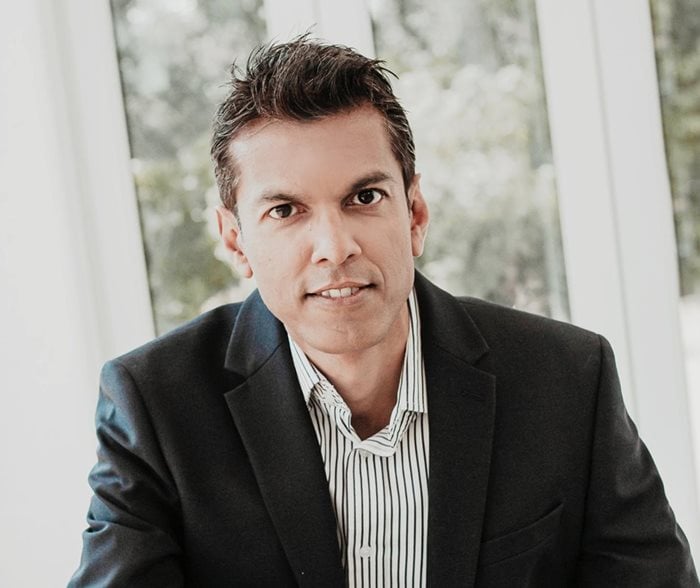Marketing & Media trends
Industry trends
BizTrends Sponsors
Trending
#BizTrends2023: Meeting your surgeon in the metaverse; can 2023 drive the metamorphosis of healthcare technology?

Sometimes far-reaching, the potential of emerging trends to transform society has driven a global technological gold rush, however, much remains to be explored regarding its impact in healthcare.
Goodbye telehealth, hello metaverse
Telehealth, the use of video calling apps to experience virtual appointments has become the norm post-Covid. This surge has evolved into a more immersive world of the metaverse.
But what is it and what does it mean for this industry?
Simply put, the metaverse is a virtual space where the digital and real worlds overlap and people interact using avatars. Its backbone comprises augmented and virtual reality, and artificial intelligence.
Meeting your surgeon in the metaverse will permit a more personalised experience, such as reviewing your digital twin heart, a virtual representation of
your heart for your planned artery procedure.
Portable heart rate and blood pressure monitors can sync with the metaverse for data collection. In the metaverse, your surgeon can conduct surgeries
before a procedure is carried out in the live surgical room with enough data to develop bespoke treatment.
Gamification and personalisation of the metaverse allow patients to socialise with others with similar health issues, providing a sense of community to make lifestyle changes.
It may sound odd for adults to use a virtual platform of cartooned avatars, but the metaverse is already mainstream and on track to revolutionise medical processes.
AI transcending doctors?
A smartphone app downloaded from your app store has an AI algorithm that can identify eye diseases using your phone camera, just as meticulous as medical specialists.
An AI sensor can detect skin cancer with more accuracy than your human doctor.
Empirical research shows that IBM’s Watson diagnoses heart disease better than many cardiologists.
Finally, downloads of mental-health apps using deep learning algorithms for psychology and psychiatry have increased by 500% removing barriers to traditional treatment.
With AI superior to humans in terms of raw computational power, it can spot subtle patterns that human doctors easily miss. Where does that leave human doctors in the medical diagnostic industry?
Despite all the benefits of AI, human doctors will not be replaced.
2023 will augment roles with AI working more actively and closely alongside doctors without actually replacing them. Doctors will more confidentially use AI diagnosis as a ‘second opinion’ to their diagnosis.
Democratisation, control of your own medical data
Patient data often needs to be shared quickly and efficiently across different healthcare professionals operating in separate networks. Delayed information transmission can lead to slow treatment, duplication of lab work and patients paying higher medical bills.
Healthcare professionals stored patient records are exceptionally inconvenient for patients to access.
2023 will see interoperability within the healthcare industry, giving patients full access and control over their healthcare data. This will be achieved by enabling them access to their Electronic Health Records (EHRs).
Doctors will be able to access a patient’s complete history, thereby reducing the need for duplicate tests if already performed and increasing diagnosis and treatment speed. This will lead to a health score to enable personalised healthcare treatment. Furthermore, patients will be able to access their health records on their smartphones.
Cyberchondria; are you obsessed with Dr Google?
Stomach ache? You could visit your doctor or consult Dr Google. However, the first thing that comes up is colon cancer!
Although a stomach ache is more likely caused by food bacteria or a strained muscle from your last workout, search engines tend to list the most serious ailments at the beginning of their search results.
Cyberchondria is a technology-based mental disorder where a person spends hours researching illness symptoms online. Psychologists state that the more a cyberchondriac tries to find information online to assure themselves that their illness is minor, the more they spiral into cycles of increased anxiety jumping to the worst possible conclusions.
With Google just revealing that health-related queries are now the second most searched term, and the American Psychiatric Association evaluating cyberchondria to be a recognised mental disorder, 2023 will see this technology-based illness accelerate further.
Standing on the shoulders of giants
Tech giants such as Alphabet, Apple, Amazon and Microsoft developed big data platforms, API, and contact-tracing apps during Covid that instantly aggregated live mobile data and triggered an ecosystem of solutions that helped reduce the spread of Covid and potentially future pandemics.
Interestingly enough, these giants also manufacture the most popular wearable devices. These wearables have sensors that continuously monitor your current health, measuring biometrics like your heart rate, temperature and activity levels, and can predict your long-term health based on the data collected.
The sensors in the next generation of wearables can analyse your perspiration for toxins, viruses, and bacteria. 2023 will see these tech giants further integrate themselves into the healthcare sector. Platforms such as metaverse and AI introduced earlier are being spearheaded by them.
These giants are providing digital solutions to facilitate data sharing and interoperability gaps, as well as replace dated legacy systems and infrastructure. 2023 will see traditional stakeholders such as health insurers forming strategic partnerships with these giants to infuse their digital transformations.
Nothing ventured, nothing gained
Healthcare services are initialised as soon as a patient becomes ill. 2023 will see healthcare providers change their approach from a reactive to a preventive healthcare paradigm.
‘Healthcare’ will move to ‘health’ that is consumer-owned and powered by these revolutionary technologies that will support early interventions and allow preventative strategies.
We must look at these innovations and technologies with optimism given their potential to provide a virtually limitless health experience. Anything that can break the barriers of geographic restriction, improve care for patients around the world and move human health one step forward is a possibility worth exploring.
Virtual reality or reality check? There remains a limitless opportunity to empower the health industry and drive true exploration through technology.













